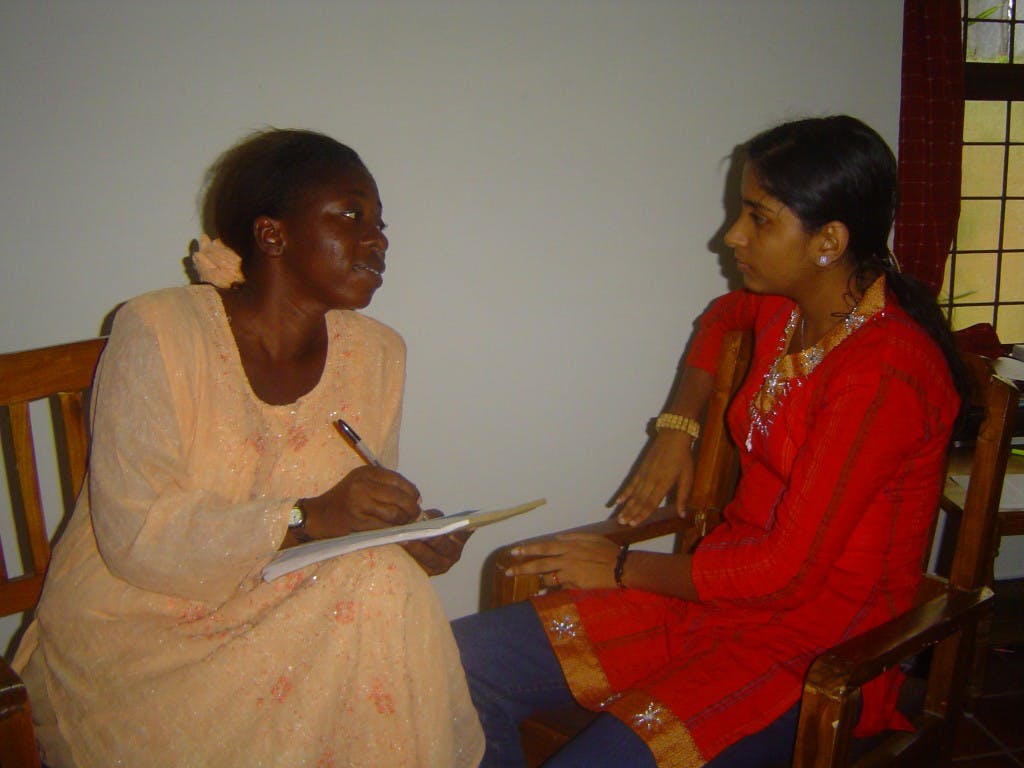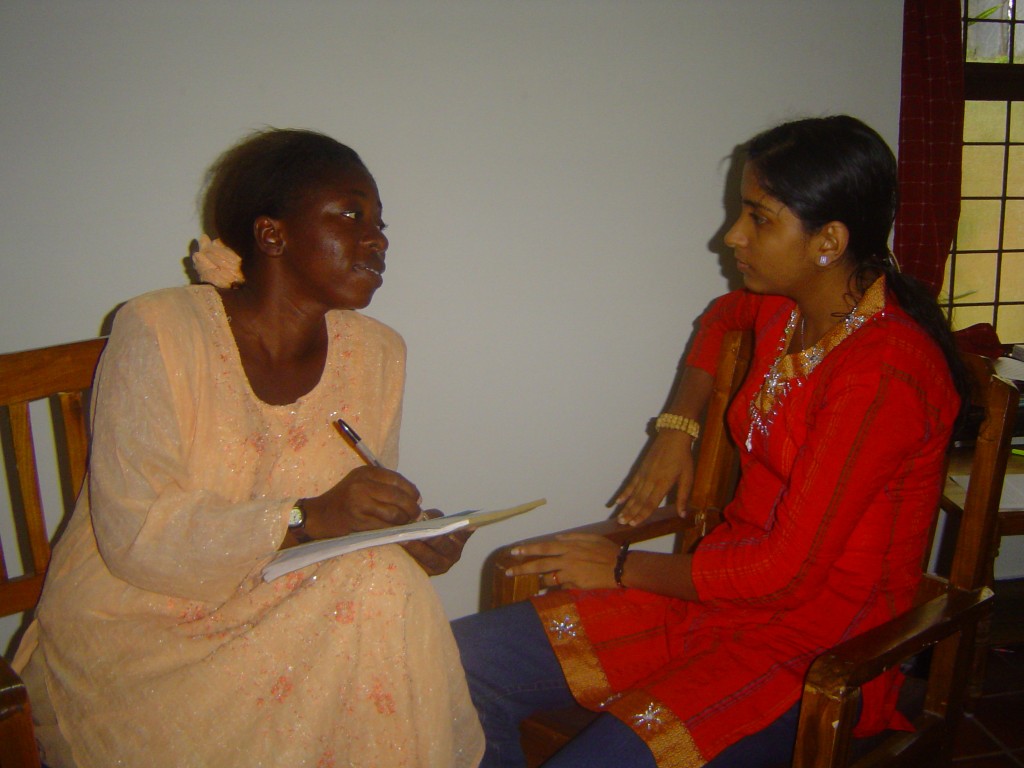TWINKE TWINKLE LITTLE CASTE
Jan 21, 2015
Story


She was all smiles when met, an attribute I had noted in all the people I have met in Visthar, he looks so young and so innocent, one wonders why she gets mingle in politico-cultural and dynamic problems of India. She hugged me and we began the interview.
Olutosin: Can you please tell us a little introduction about yourself Soumya.
Soumya: My name is Soumya Vincent, an Indian who wants a change, I am a twenty one years old, an aspiring Journalist, just finished my final exams and awaiting result and a producer.
Olutosin: How did you become involved in this sacred subject?
Soumya: I want to study the issue of children and this is a very sensitive subject
Olutosin: When you know that it is sensitive, why get involved?
Soumya: Children of ages 3-4 years today will eventually become leaders of tomorrow, it they face this discrimination again in their early life, then they will perpetuate same later in life.Also, I want the world to know that in Kerala, a state believed to be an enlightened one, with no caste boundary or untouchability still have people with such notions in their minds, therefore this documentary reveals these atrocities.
Olutosin: You are so young, how come you became easily moved by the plights of the Dalits?
Soumya: In Prikalangodu, Oothalakandy near Karikkadu, Malapparam District, the Dalits have colonies, four colinies, we are not allowed to associate withthem so as not to be contaminated, up till today
Olutosin: So if an Upper caste hugs a Dalit, what happens?
Soumya: You see, Dalits are invited to other Indians houses, but theya re not allowed to enter their rooms or kitchen and must sit on the floor, when they leave the house, there is what we call purification
Olutosin: What is that about?
Soumya: It is called Shudhikalasham, process of purifying every property the Dalit has touched, it is purified by sprinkling some water after reading some passages of mantra, it will be sprinkled, this is a special water kept in room or place used for worshipping Hindu deity
Olutosin: What is the law saying about Untouchability in India?
Soumya: Dalit is abolished constitutionally and anyone practicing it will be punished accordingly, unfortunately, this si sstill practiced in the name of religion. There is no remarkable difference between twenty years ago and now. Untouchability is a way to show off money and power, the people's tradition is still followed and there is always attempt to return to tradition- the constitution is double face.
Olutosin: Why is it so?
Soumya: The law says that it should not be practiced but the people's mindset has not been set free. Dalits are discriminated against in various areas, also the constitution upholds untouchability by not destroying the caste system.
Olutosin: Can you please shed more light on the caste system?
Soumya: It is a religious cum political ideology that established a system that says Brahmains come from the mouth of the supreme being, Kshatriyas from the shoulders or upper torso, the Vaishyas from the thighs and the Shudras from the feet. The untouchable is considered to be even lower that the feet.
Olutosin: If the untouchables come from under then feet, which part of the supreme being are they made from then?
Soumya: Not known
Olutosin: When did this idea spring up?
Soumya: It is more like the genesis of Hinduism, how man came into being, caste system is from the begining of man
Olutosin: What do you think is the solution to this problem?
Soumya: If it is possible to remove the caste system, becasue the peole are hiding behind caste bias, it is entrenched in the people's thinking pattern.
Olutosin: Do you mean that there is no solution?
Soumya: Oh no, when enlightened Indians begin to change their concept, beccause even some Dalit professors are not respected by their students, an upper caste student will call a Dalit professor by name and call his younger colleague "SIR"
Olutosin: What was Mahatma Ghandi's opinion, I respect him so much?
Soumya: He was deep rooted in the caste system. He never questioned it, he perpetuated by saying untouchability can be abolished but the caste system remains. He changed the name of the untouchables to Harijan's literarily it means CHILDREN OF GOD. But the Dalits who thought he was doing them good accepted the name initially but revolted later and changed the name to Dalit.
Olutosin: What is Dalit?
Soumya: It is a new word that arose in Maharashera, first used by Jyotiaro in the 19th centure, it means someone who had been crushed, suppressed, broken to pieces.
Olutosin: How can I differentiate between an upper caste and the dalits?
Soumya: You cannot identify the difference but most times, poverty is associated with the dalits, these Dalits are more than 18 million in India and about 60 million aroound over the world.
Olutosin: Any other information you will want us to know about the Dalits?
There is hierachy in Dalits too, they have caste and sub caste within the dalits, for example, some can be shoe menders in some areas and they will be discriminating against manual scavengers that clean latrines and drains with their hands.
Olutosin: Did you face any harrassment after the production of this documentary?
Soumya: Yes
Olutosin: From which quarters?
Soumya: From my people, the society, the upper caste in my village, pressure from my parents, people were saying why choose this topic? and my parents were told to marry me off to some man, why spending so much on her education and causing so much troubles.
Olutosin: Who sponsored the documentary?
Soumya:: My savings and some friends.
Thanks for your time Soumya, you are doing a great job. (Hugs)
Nisha translated in English




